Published: 11 September 2017
Last updated: 4 March 2024
On Lag La’Omer 5772, we signed the Shtar Shutafut (partnership contract) that became our unique form of ketubah in the presence of Shomer Mitzvot eidim (religiously observant witnesses). Weeks earlier, when one of our eidim told us he would have to ask his Rav before confirming his attendance at our wedding, we worried there was no way his Rav would permit him to attend. After all, we had already received word that some of our dearest loved ones would be absent. “We love and support each of you,” one Chasidic couple explained, “but we cannot support your relationship.”
Our eid later told us that his Rav had responded unequivocally: “Not only can you attend their wedding, you must!” His Rav had explained that if, after the many hardships Sruli and I had endured to remain frum, our frum loved ones refused to show up to celebrate the frum life we were building together, then it would send the message that there was no place for us within the Orthodox Jewish world at all. His Rav understood that it was not possible to truly support each of us without also supporting the sacred life we were building as a frum same-gender couple.
[caption id="attachment_13811" align="alignnone" width="300"]
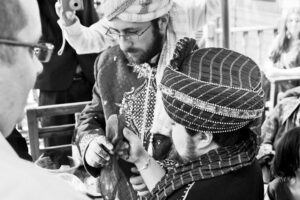 Photo: Makini Chisolm-Straker[/caption]
Photo: Makini Chisolm-Straker[/caption]In our married life together, we bring in Shabbat together at our home in Sydney each week, walk to the Beit HaKnesset (synagogue) for Shabbat services together, and often observe the mitzvah of Hachnasat Orchim (hosting guests) for Shabbat meals in our home. We also attend weekday religious services when our work schedules permit. Over the past decade, we have supported each other through doctoral research, volunteered together to give back through community service, and cared for each other whenever one of us is ill or injured. We had a romantic courtship centred on our shared love of learning, contributing to our religious community, and building a life together guided by Torah values.
Recently, our local Orthodox synagogue held a panel to discuss the issue of same-gender marriages like ours. Although I did not attend, several people who were present expressed concern that people like us were being discussed without any attempt to include input from us. When I walked into the Beit HaKnesset on the following Shabbat morning, I felt embarrassed for our beautiful marriage to be subjected to public scrutiny. I looked at the people around me and wondered whether they would be voting against my right to have our civil marriage recognised in Australia. Suddenly, the synagogue no longer felt like ‘ours’. We were outsiders on the margins once again, our intimate lives open for public debate and judgement. The irony of this is that my husband Sruli is a very private person and our relationship is founded on the religious principle of tzniut (modesty).
By excluding our voices, these panels turn profoundly human issues into purely intellectual discussions. The predictable consequences of discussing human issues without including the actual humans involved are statements like the one issued recently by the Rabbinical Council of Victoria (RCV) urging citizens to vote against civil marriage equality. This statement claimed that granting civil marriage equality would change ‘the definition of marriage’ and intimated that such equality would cause fundamental damage to society. The RCV ignored historical evidence that the definition of marriage has changed numerous times and has often been used to restrict people’s rights, such as when marriages between people of different skin colours were illegal in the United States. The RCV statement then claimed to advocate ‘compassion’ for people in marriages like mine. Only in a discussion that omits the voices of the real people whose lives are being debated could a statement advocating denial of their civil rights be considered ‘compassionate’.
[caption id="attachment_13810" align="alignnone" width="300"]
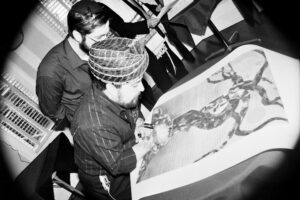 Photo: Makini Chisolm-Straker[/caption]
Photo: Makini Chisolm-Straker[/caption]Given the limited air time for discussion of same-gender couples’ needs in Orthodox contexts, panels that exclude our voices are missed opportunities for Orthodox synagogues to raise awareness and compassion about our real lives. I am reminded daily that people have little genuine knowledge about us. Lots of folks who have never met us, and who have never had a close personal friendship with a same-gender married couple, share unsolicited opinions with us about who we are and what they assume we do together. They make claims about what the Torah says based on unverified and inaccurate stereotypes about us.
We cannot have a meaningful, informed halachic discussion about people without ever hearing from those people themselves – halachic rulings require nuanced understanding of material facts that few people seem to possess.
A lot of people in Orthodox communities, including some rabbis, seem to have difficulty distinguishing between civil marriage – which is contracted through secular government authorities and doesn’t involve any religious ceremony, clergy, or house of worship – and religious marriage – which involves religious ceremonies, and sometimes clergy and houses of worship. A friend who attended the synagogue event said panellists expressed the need for clarification from the government about what the plebiscite covers. However, there is no need for clarification. The plebiscite is and has been very clearly only about civil marriage. It does not and will not obligate any rabbi or religious institution to perform any same-gender ceremonies. All it does is ensure that we and our family are treated fairly and equally under civil law. We’ve already seen an increase in hate crimes and bullying in schools directly due to the plebiscite. We’ve already seen how making equal rights a matter that is up for a vote creates a climate in which people feel that treating others fairly is optional.
My husband Sruli is a doctor in Western Sydney. He works long hours saving the lives of families like yours. He has helped to save the life of a child who had severe burns all over his body, consoled worried spouses who were afraid of becoming widowed, and helped to keep many families like yours alive and together. In my work as a psychotherapist, I, too, help people to improve their families and their marriages, all while being denied basic recognition for my own marriage.
It seems weird and inappropriate that people who know nothing about us or our relationship will get to decide whether we deserve equal treatment under Australia civil law, whether our 14 years together and six years of married life ‘counts’. Imagine for a moment if you had to ask each person in the country for permission before you could be married and build a life together with the person whom you love. Imagine if your children had to grow up worrying whether their family would be protected equally by Australian law. Now imagine that everyone in the country got to make this decision about you and your family without ever having to speak with you or anyone like you, without having to know anything at all about your life.
The RCV statement described the vote in terms of its impact to ‘society’, without considering the impact on the real people about whose lives you will be voting
This is the situation in which Sruli and I now find ourselves, wondering if each neighbour or salesperson we meet in passing knows that they’ve been given license to cause tremendous harm to our life together, wondering whether the people standing in our queue at the grocery store have enough information to make an informed choice about whether we deserve equal rights in Australia. The RCV statement described the vote in terms of its impact to ‘society’, without considering the impact on the real people about whose lives you will be voting. It is vital for you to remember that although your relationship and your family will go on the same regardless of what you decide, there is so much at stake for us and for our lives in this vote. As Orthodox Jews in Australia, we have no opportunity for formal recognition of our marriage in our religious community. If you also deny us equal recognition through civil marriage, then you will leave us with no options at all.
[caption id="attachment_13809" align="alignnone" width="300"]
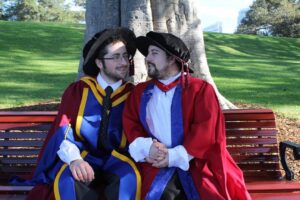 Photo: Liam Beliveau[/caption]
Photo: Liam Beliveau[/caption]Sruli and I are only two of the many people whose lives are personally affected by the plebiscite. We know of many other couples who are affected in different ways by the plebiscite, including people who have been forced to get divorced before they can be recognised in their gender under our current discriminatory marriage legislation. In addition to people harmed by ‘forced trans divorce’, we know of intersex people (people born with physical characteristics that are not considered strictly female or male) who cannot be guaranteed the right to marry any person in Australia. We know of same-gender couples with children whose families have been torn apart by the nasty public debate occurring on school playgrounds and in boardrooms alike.
Instead of continuing to talk about us, please talk with the people whose lives you’ve been given the power to harm. Recognise that, without listening to real people talk about their real lives, you won’t have the facts you need for a responsible and ethical vote. Please, don’t continue to have such important conversations about us, without us. Thank you.
Top photo credit: Makini Chisolm-Straker
This The Jewish Independent article may be republished with this acknowledgement: ‘Reprinted with permission from www.thejewishindependent.com.au ’


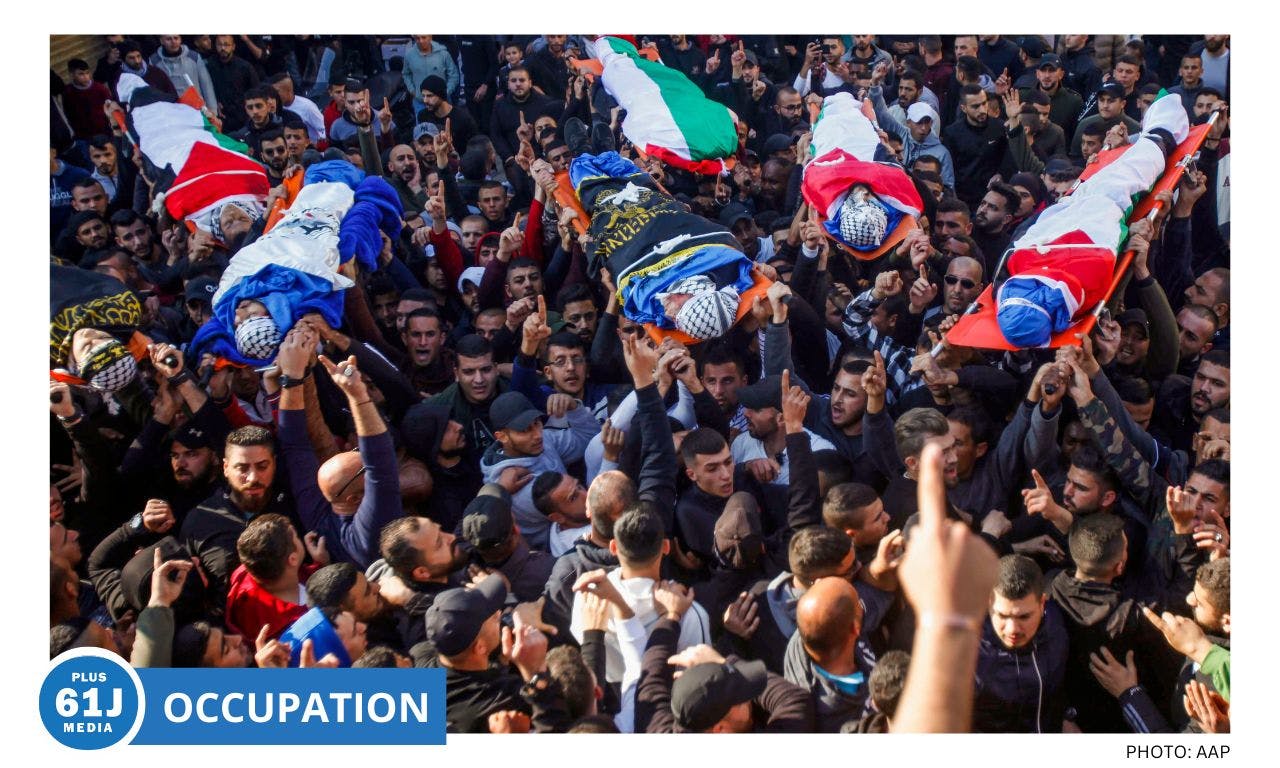

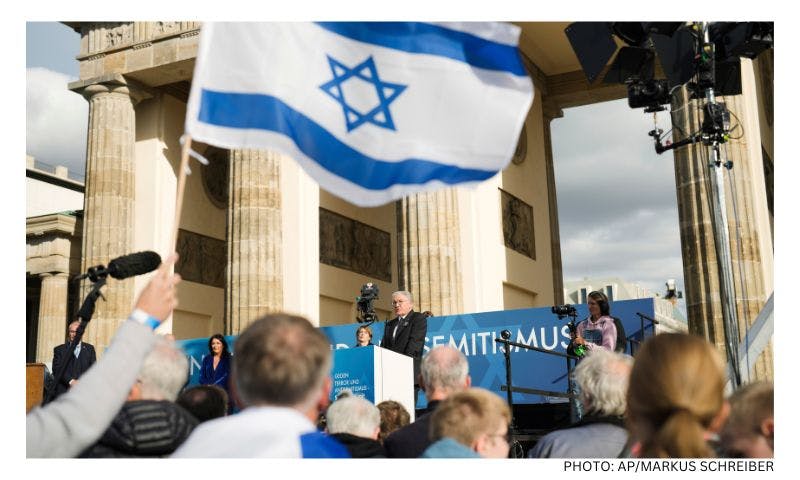
Comments
No comments on this article yet. Be the first to add your thoughts.